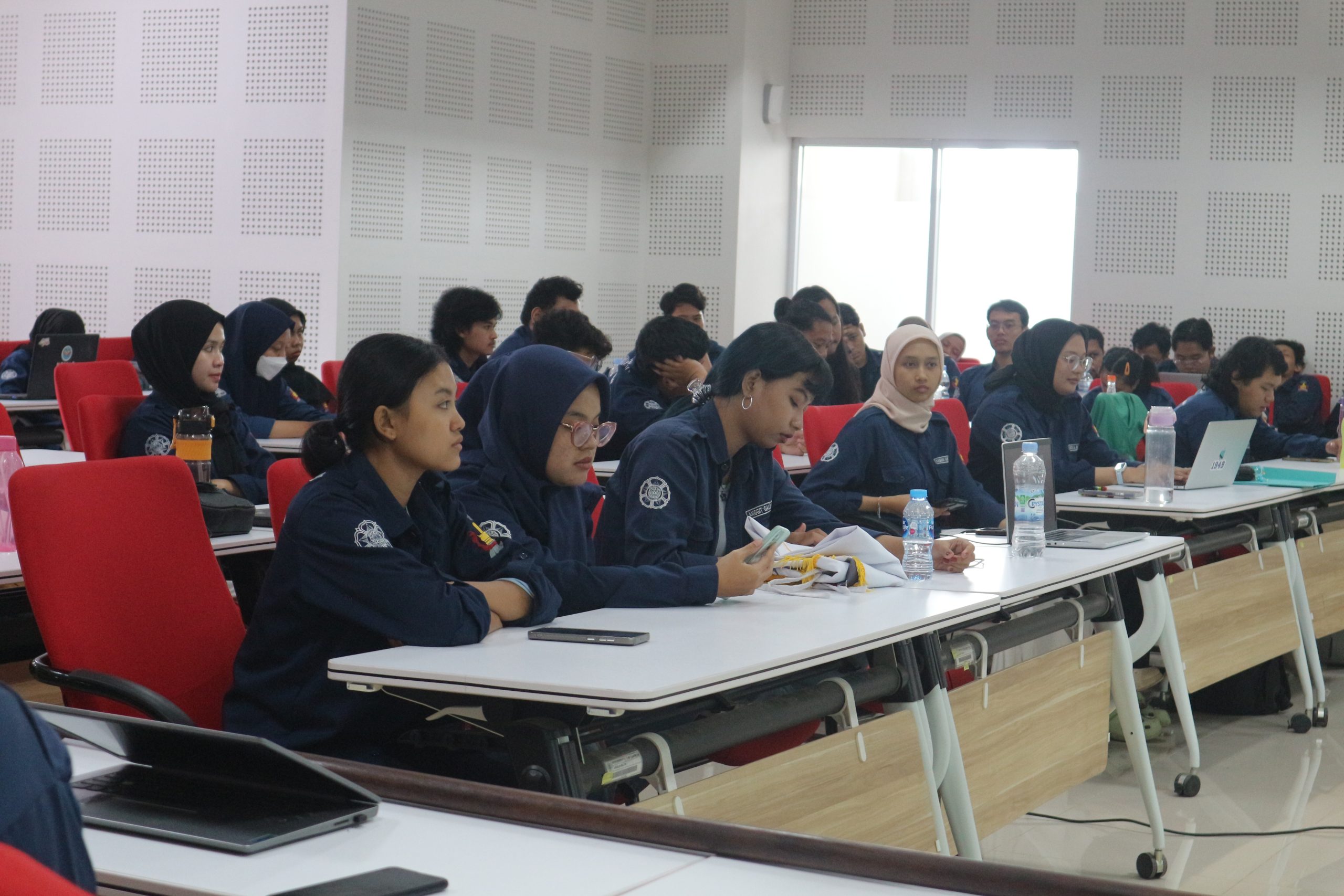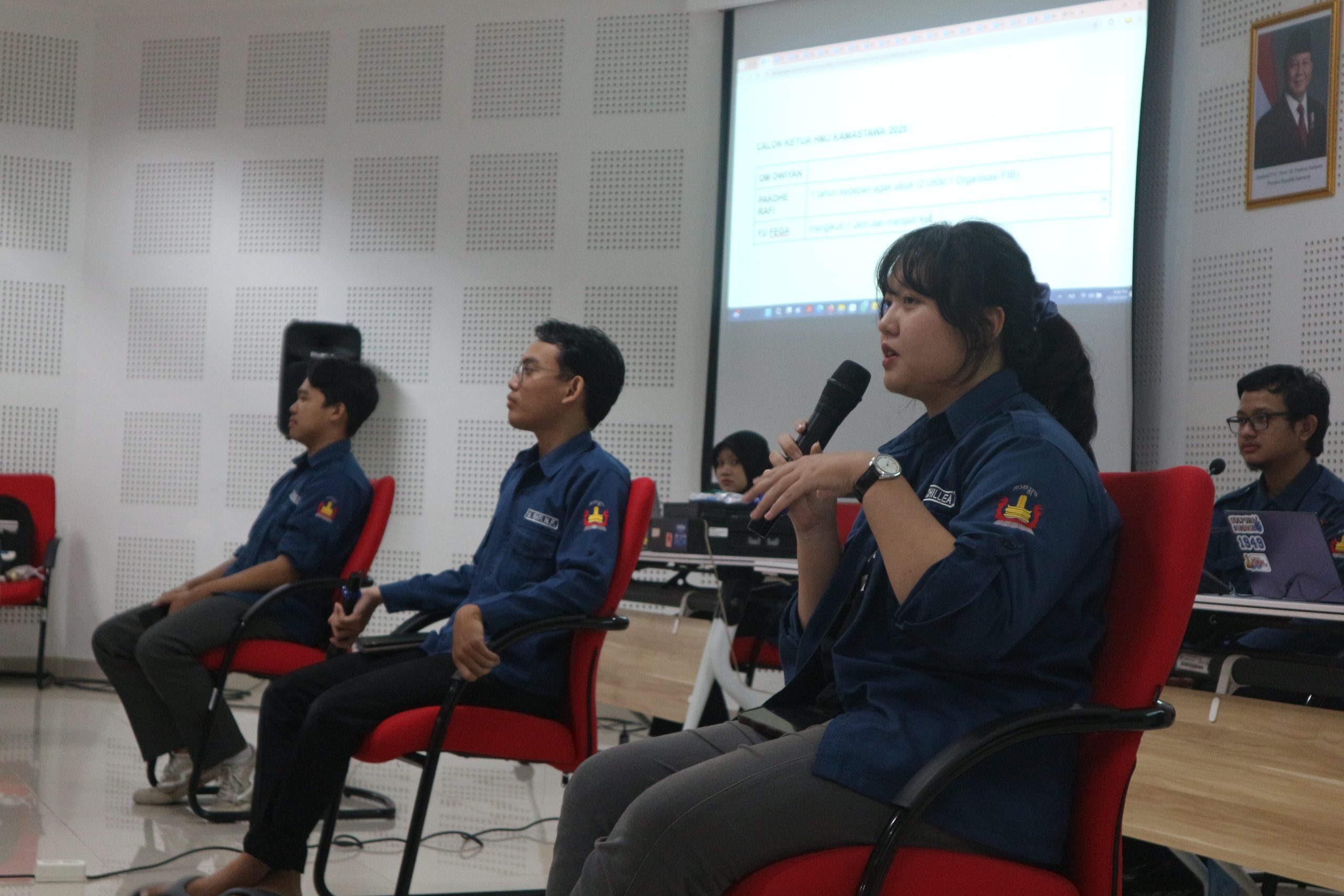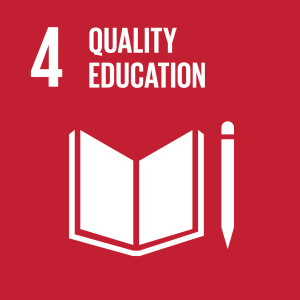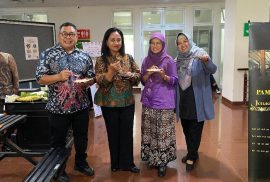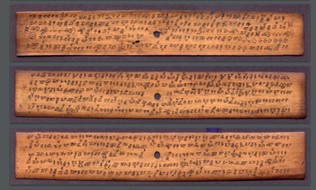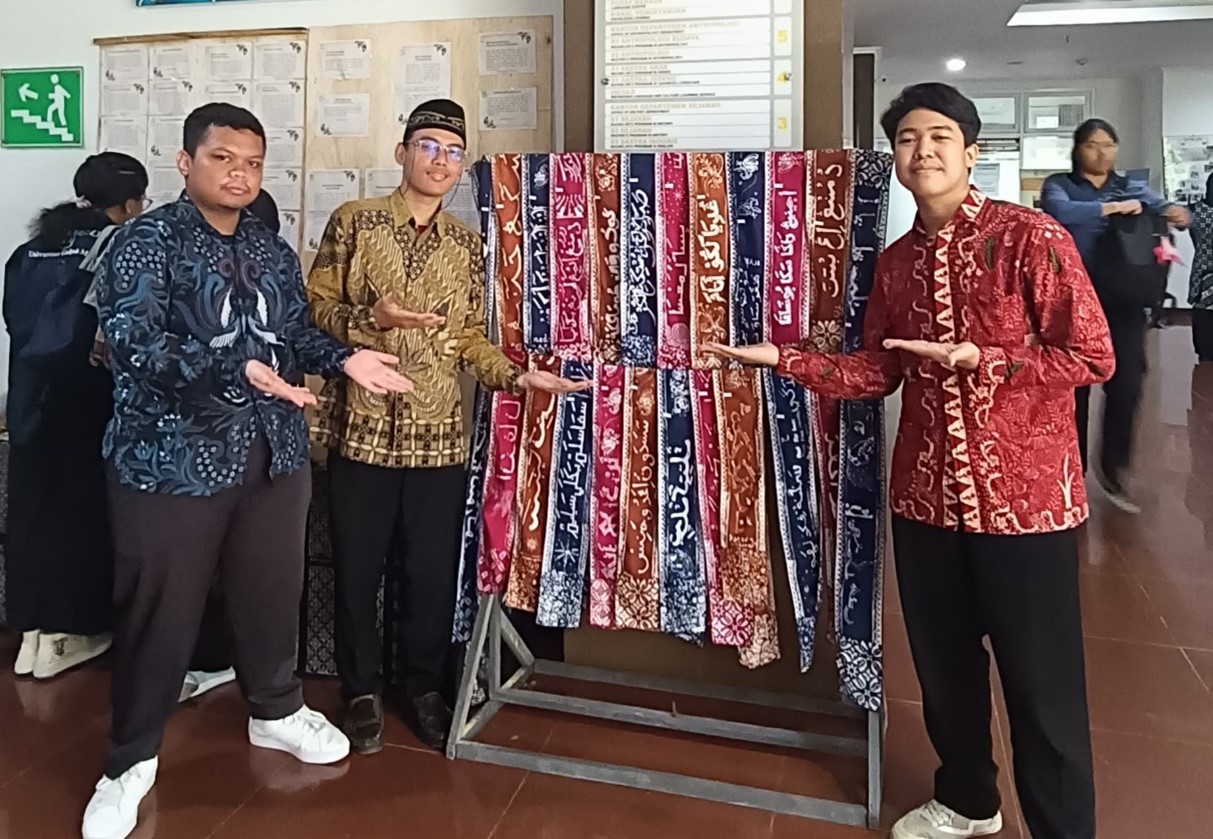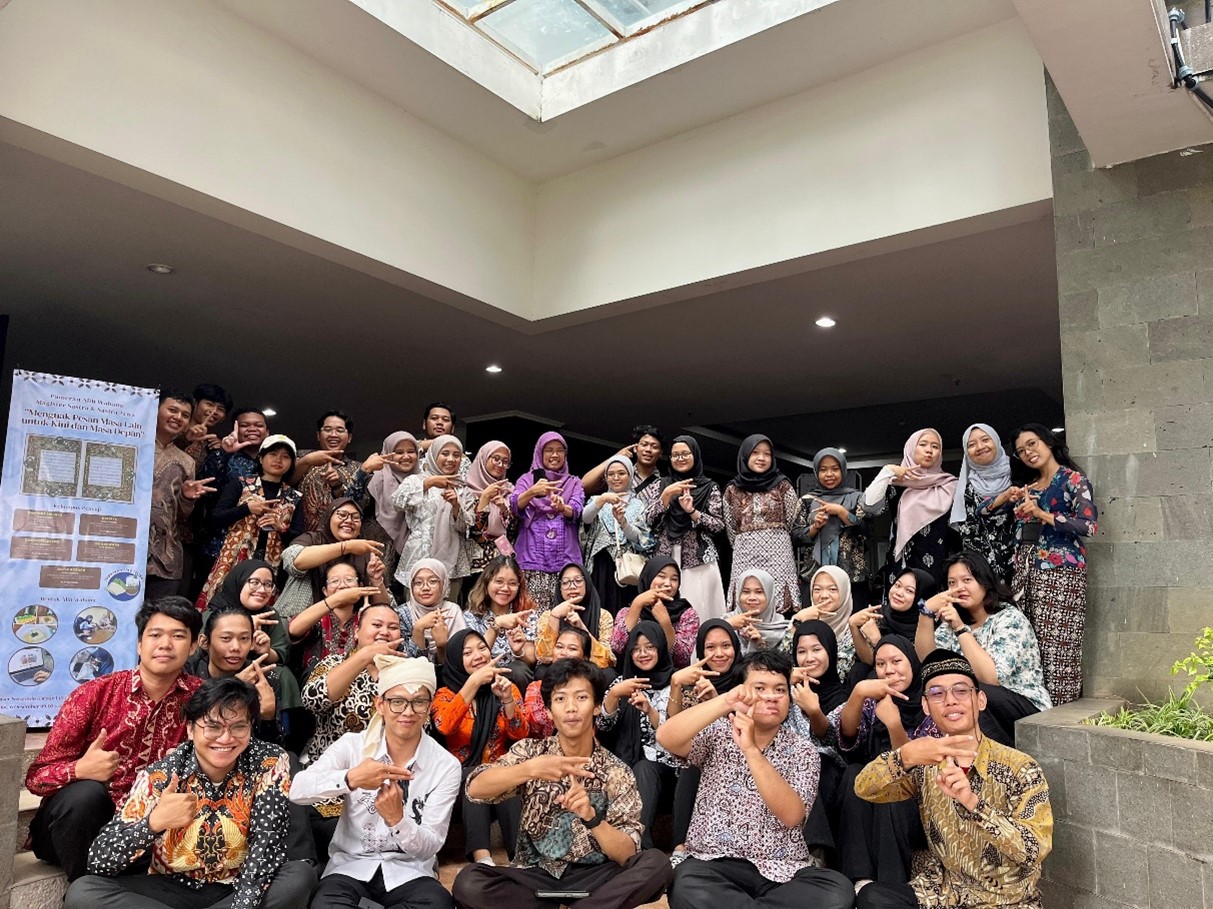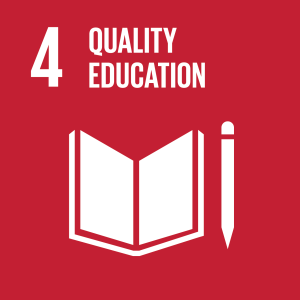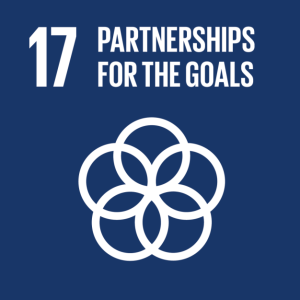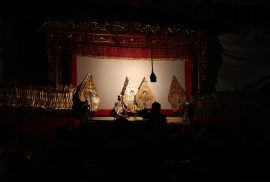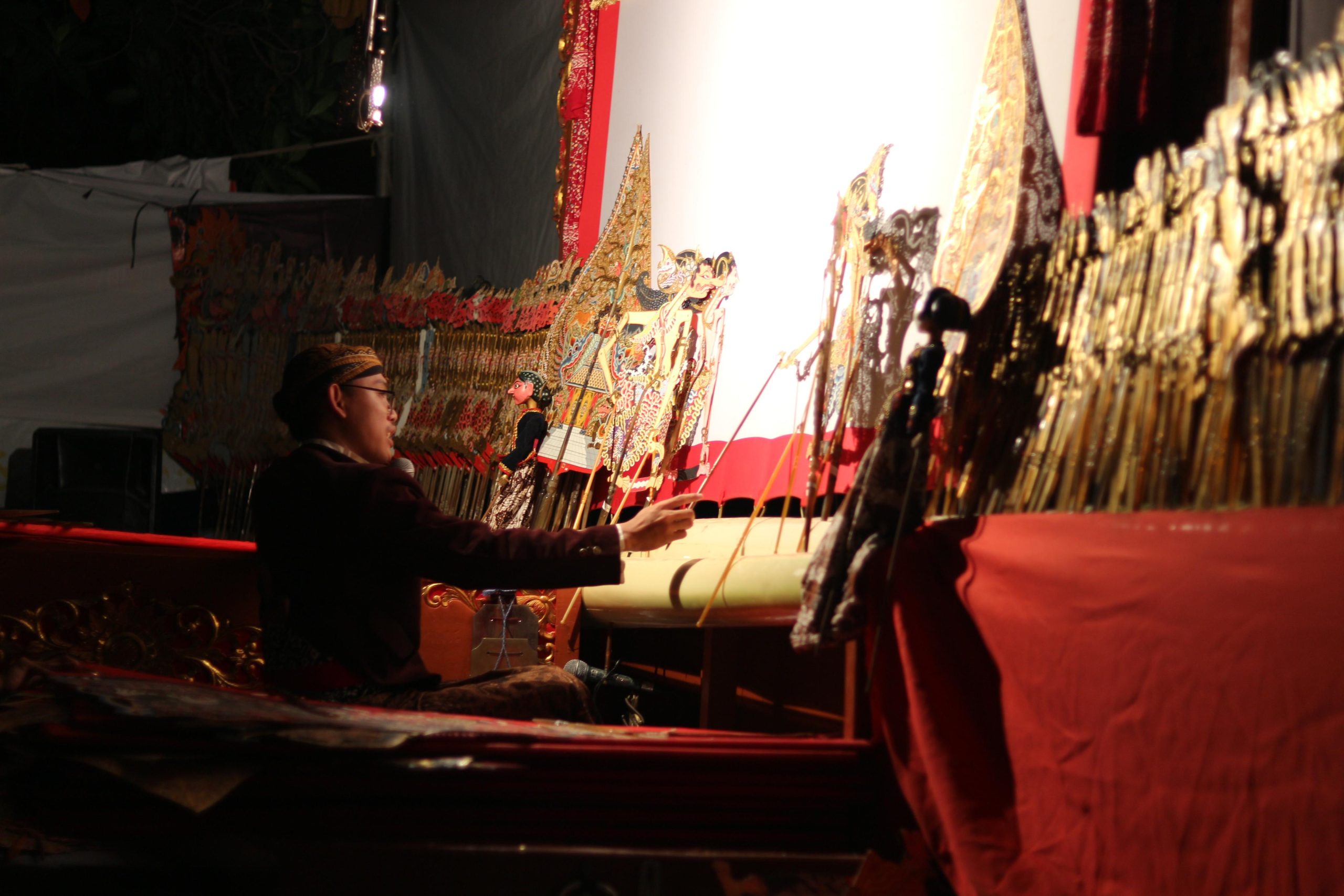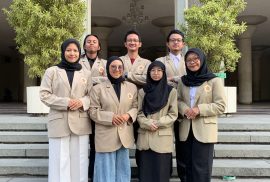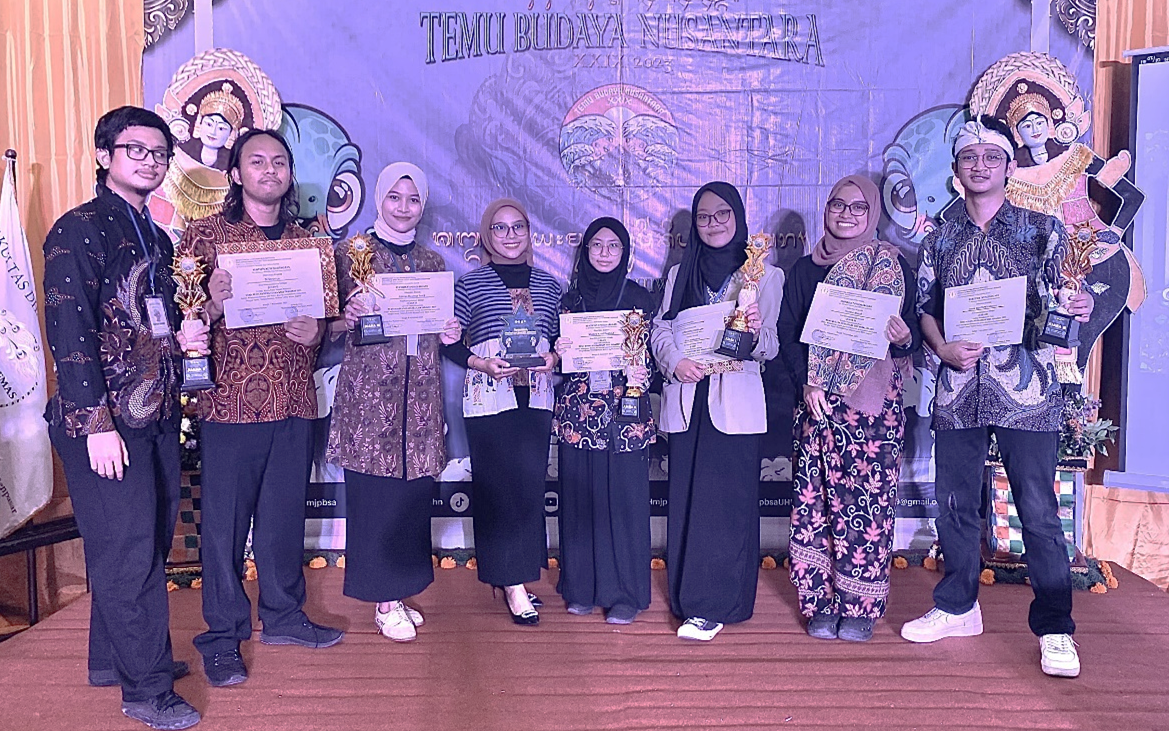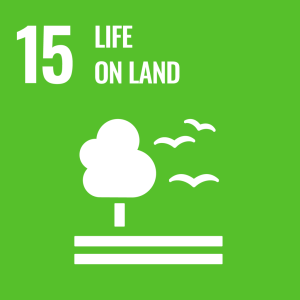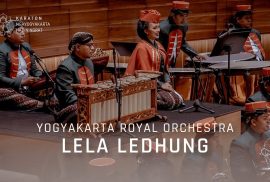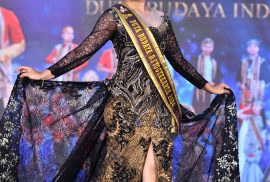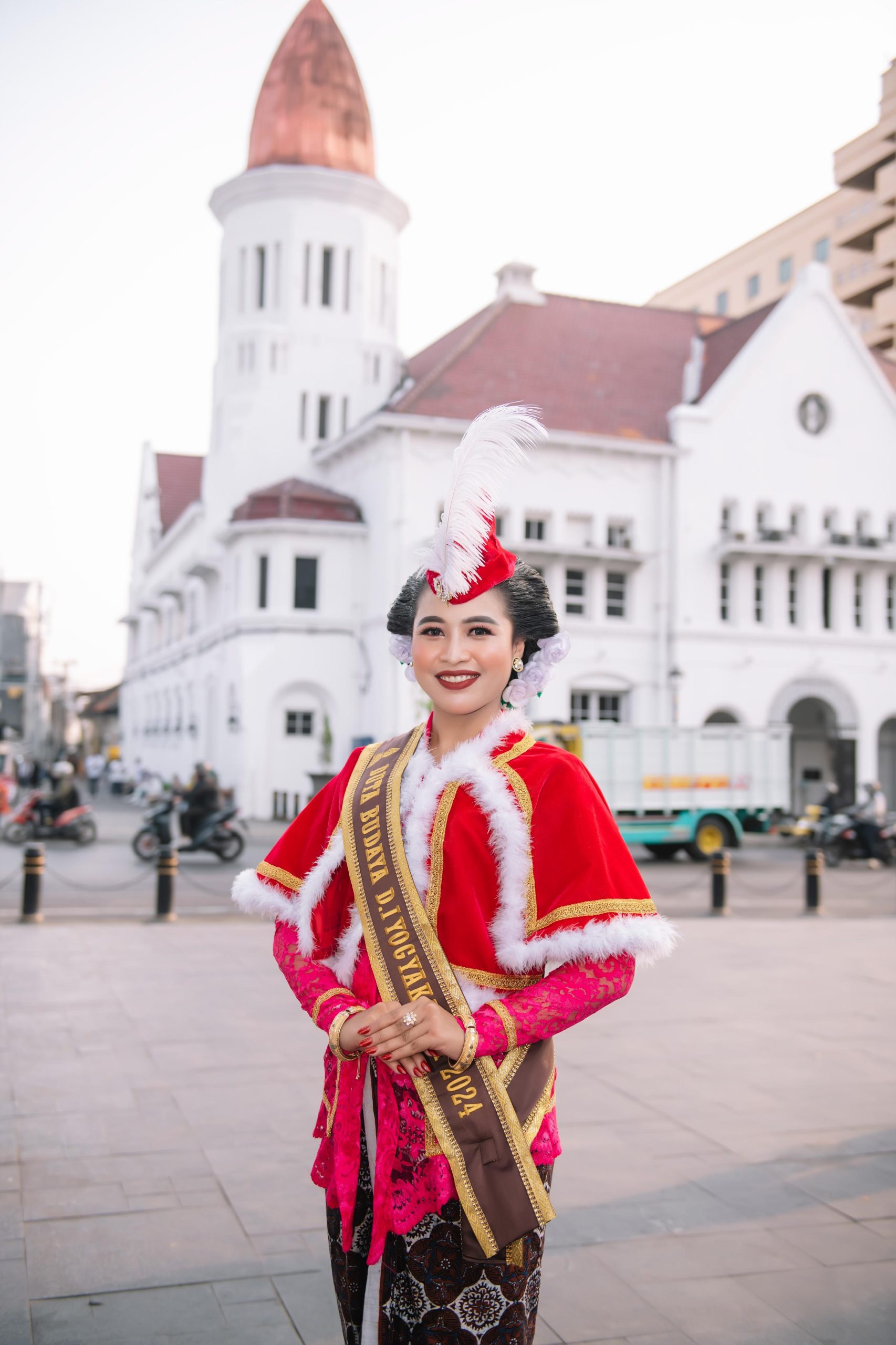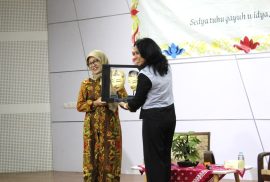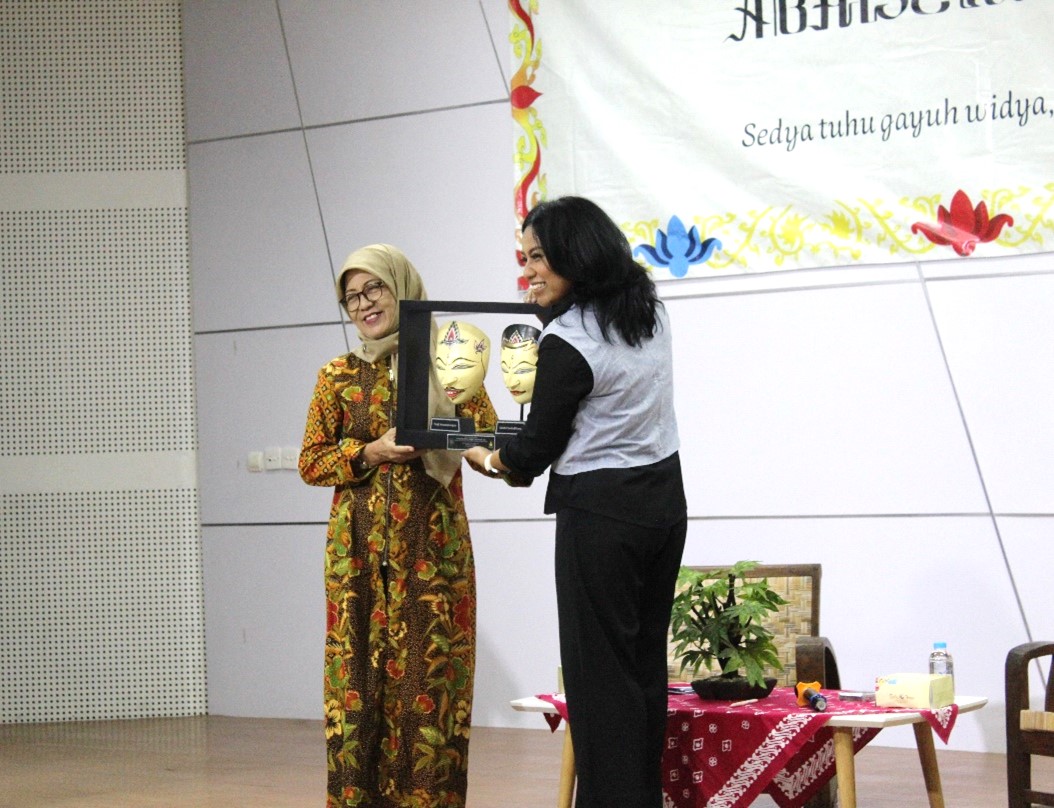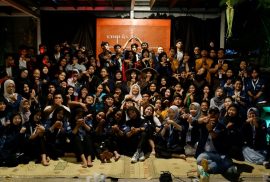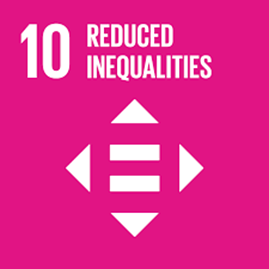Great Deliberation of the Javanese Language, Literature and Culture Department Student Association and Election of Candidates for Chairman for the 2025/2026 Period
College StudentNewsOtherSDGSStudentStudent's Activity Tuesday, 17 December 2024
Yogyakarta, December 14, 2024 - The Student Association of the Javanese Language, Literature and Culture Student Family (HMJ Kamastawa) Study Program. Literature, and Javanese Culture held a big year-end deliberation to read out all the accountability sheets (LPJ) of the events that had been carried out in the 2024/2025 period, agreeing on the Basic Bylaws (ADRT), and determining the chairman of HMJ Kamastawa for the 2025/2026 period. The event took place in room 709 Soegondo Building from 08.00 WIB to 17.00 WIB.
The event was opened by Nadiffa Setya (class of 2023) as Master of Ceremony followed by singing Indonesia Raya and Gadjah Mada Hymn, followed by remarks by the Head of the Javanese Language, Literature and Culture Study Program Dr. Daru Winarti, M.Hum. and Kamastawa Advisor, Imam Prakoso, S.S., M.A. who attended the event online. The discussion of LPJ and ADRT was led by Saktia Hidayah (class of 2022) as the first presidium, Haryo Untoro (class of 2022) as the second presidium, and Dhiny Maulina (class of 2022) as the notetaker.
The first discussion began with the reading of accountability sheets (LPJ) for several activities that have been carried out by HMJ Kamastawa such as Gugur Gunung, Abhiseka Kramasisya and Temu Budaya Nusantara. The LPJ was read by the chief executive of each event. Then continued with the reading of the LPJ of each division of HMJ Kamastawa, which is:
- Chairman
- Vice Chair
- Secretary
- Treasurer
- Human Resources Division (HR)
- Public Relations and Organization Division (RPO)
- Social Society Division (Sosmas)
- Media and Information Division (Medinfo)
- Scientific Division
- Entrepreneurship and Logistics Division (Kewirugistik)
- Interest and Talent Division (Mikat)
The event was paused with a prayer break and lunch. Followed by a discussion about the election of the new chairman of HMJ Kamastawa for the 2025/2026 period. There were three candidates proposed, namely M. Rafi Nur Fauzy, Fega Achillea Maydena, and Dwiyan Teguh Darmawan, all three of whom are students of the Javanese Language, Literature and Culture Study Program class of 2023. The three of them read the vision and mission that will be held for one period. After reading the vision and mission, entering the question and answer session, each candidate received questions from the chairman and several members of HMJ Kamastawa. Then continued with the deliberation session, with the deliberation of all participants, Dwiyan Teguh Darmawan was determined as the Chairman of HMJ Kamastawa for the 2025/2026 period. The discussion of the determination of the chairman of HMJ Kamastawa ended the entire series of Great Deliberation events. The Great Conference was closed with a group photo documentation session.
.
Deliberation teaches students to socialize with others, communicate, and express opinions. It is hoped that with this deliberation, students will be able to learn to organize well and carry out their responsibilities.


